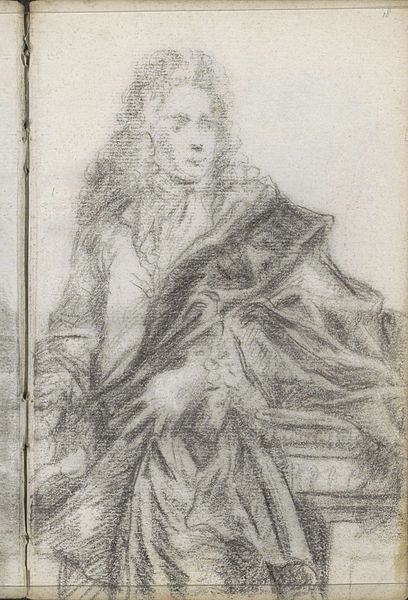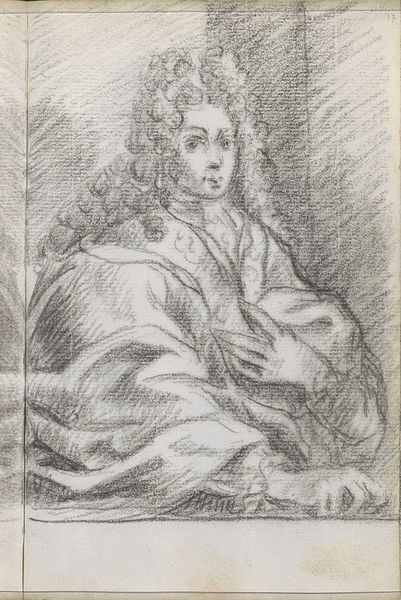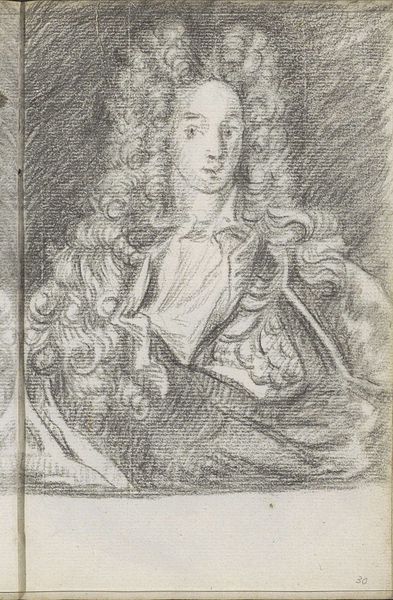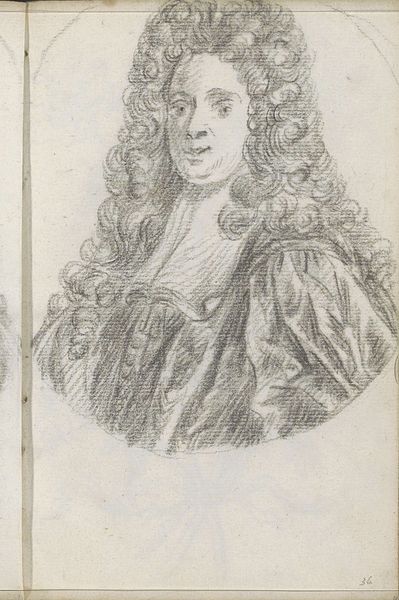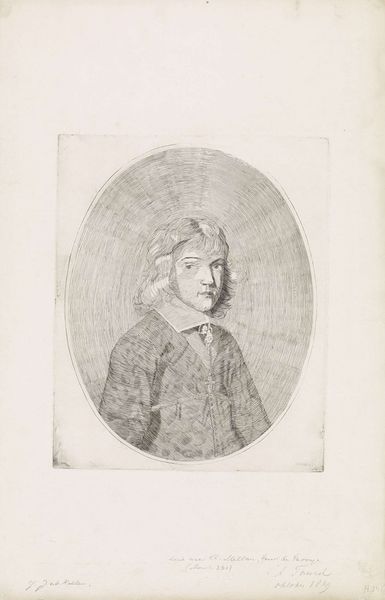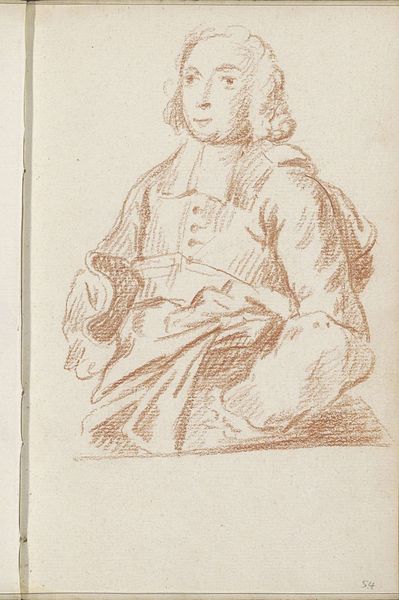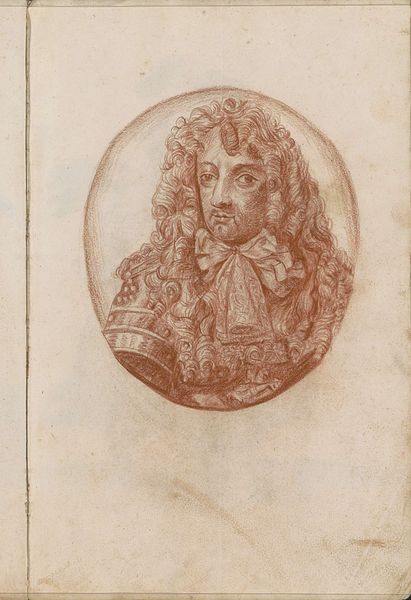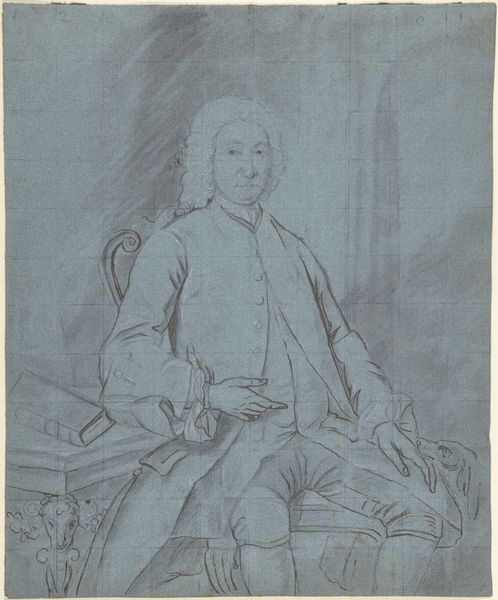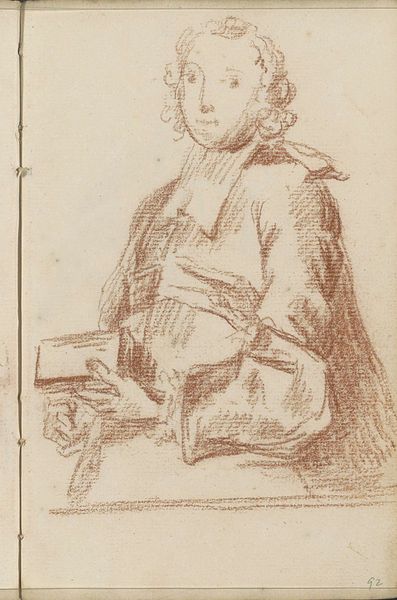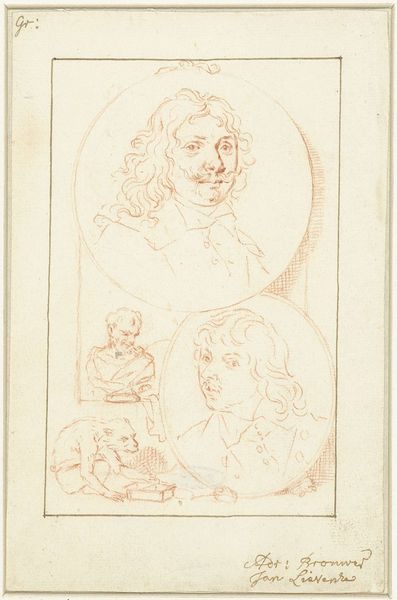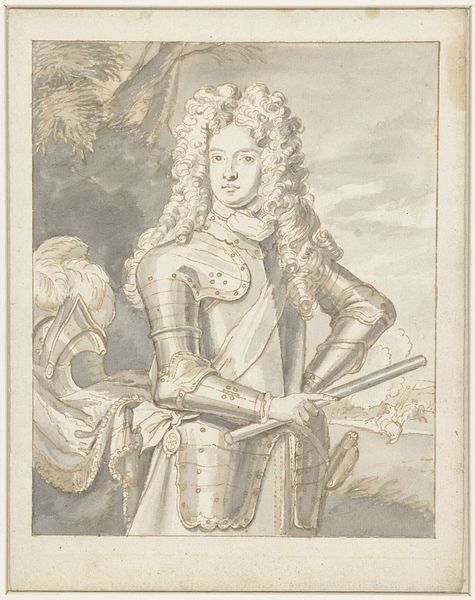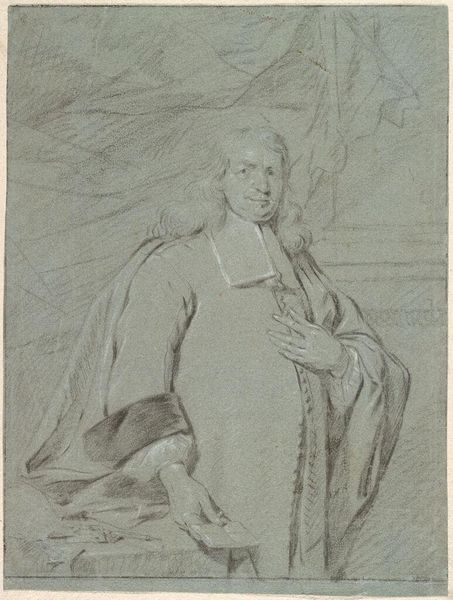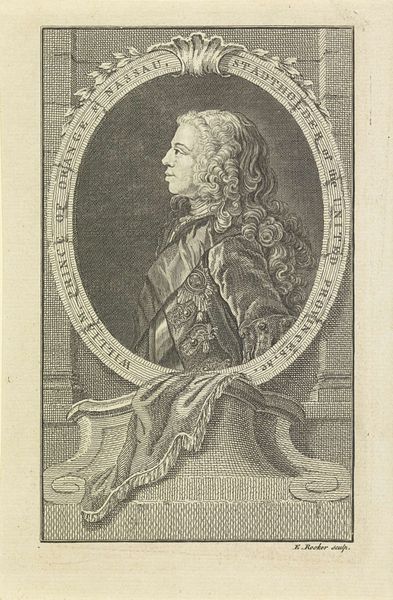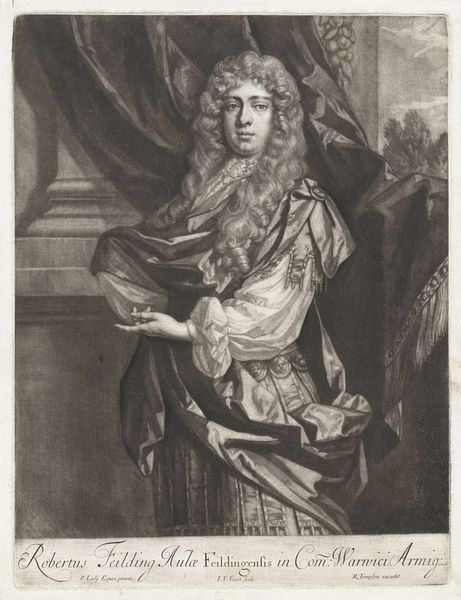
drawing, paper, pencil
#
portrait
#
drawing
#
baroque
#
pencil sketch
#
paper
#
pencil
#
sketchbook drawing
Copyright: Rijks Museum: Open Domain
This sketch of a man, made by Petrus Johannes van Reysschoot, probably in the mid-18th century, is rendered simply with graphite on paper. At first glance, the portrait seems traditional, the kind of work one might expect an artist to produce in preparation for a more formal painting. But consider the nature of drawing itself. It’s immediate and direct, a transfer of an idea with minimal mediation. You can see the pressure of Reysschoot’s hand in the varying darkness of the lines. Look closely, and you’ll notice the quickly sketched lines, the way the shading gives volume to the sitter's draped clothing. It is inherently a medium of observation and allows for revisions and adjustments, which we see here clearly. The economic context is interesting too. Paper was relatively cheap at this time, while graphite was becoming more readily available. The means of production were aligning to make drawing a more accessible skill. When we focus on the material and process, the work transcends its ostensible subject. We begin to see the drawing not just as a study, but as an object of real interest in its own right, blurring the boundaries between fine art and craft.
Comments
No comments
Be the first to comment and join the conversation on the ultimate creative platform.
